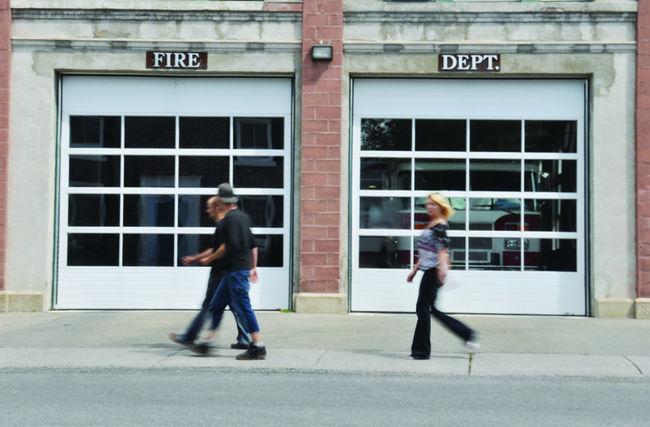
Earlier this month, when I suggested arbitration should be a provincial election issue, I was not, of course, expecting it to become a provincial election issue.
The dull topics that interest municipal nerds like me do not make for sexy campaign soundbytes.
As we now see, however, they do make for some expensive stuff.
Not to say I told you so…
A few points need to be acknowledged.
First, Brockville’s firefighters do, as association president Doug Pert says, provide “good value” in their service.
And second, Brockville will likely always have higher-than-average firefighting costs, given its sliced shape.
While the relatively small parallelogram that is this city on the map could, under normal circumstances, be covered by one single fire station located centrally, circumstances are not normal. That parallelogram is sliced near the bottom by railway tracks that, at any given time, could leave blaring fire engines waiting for potentially deadly minutes as a freight train lumbers past.
Without a dedicated station south of those tracks, then, home ownership in that part of town would carry some statistical risk – a number, however small, we would never want to see translated into a death.
Still, while accepting that we have to shoulder extra firefighting costs, we must still draw limits. In these times of local economic uncertainty, with a diminishing industrial base not, as yet, being replaced fast enough by the next great economic engine, we will continue to suffer if we are repeatedly forced to give one segment of the public sector 3.5 per cent increases every year.
To be precise, those are just the retroactive increases handed down by the public-sector-minded arbitration panel for 2011 and 2012. The city will soon begin negotiations with firefighters for 2013 and 2014 collective agreements. What incentive would any labour-side negotiators have to hammer out a cost-conscious deal when it knows the nuclear option of arbitration will net it 3.5 per cent?
The fiscal hits could keep on coming, well into 2015, even as we remain a year behind.
This has not become a burning issue in the provincial campaign, as I said, but it will most certainly become an issue in the municipal campaign.
Yet another wage increase handed down by an outside panel, with little apparent understanding of economic and fiscal conditions on the ground, will turn city hall’s plan to switch to the Orangeville firefighting model into a fiscally-tough re-election platform.
It will also give fresh ammunition both to supporters and opponents of the Ontario Provincial Police option for city policing.
Look at the increases we may be saddled with on policing if we don’t do something – anything – to cut costs, OPP supporters will argue.
Supporters of the city police will reply that, once you switch to the OPP, arbitration will still loom in the background, but you will have even less control over labour talks.
Sadly, any control over arbitration lies in the hands of the people we will elect June 12 – and their thoughts on the matter seem of little interest to the electorate at large.